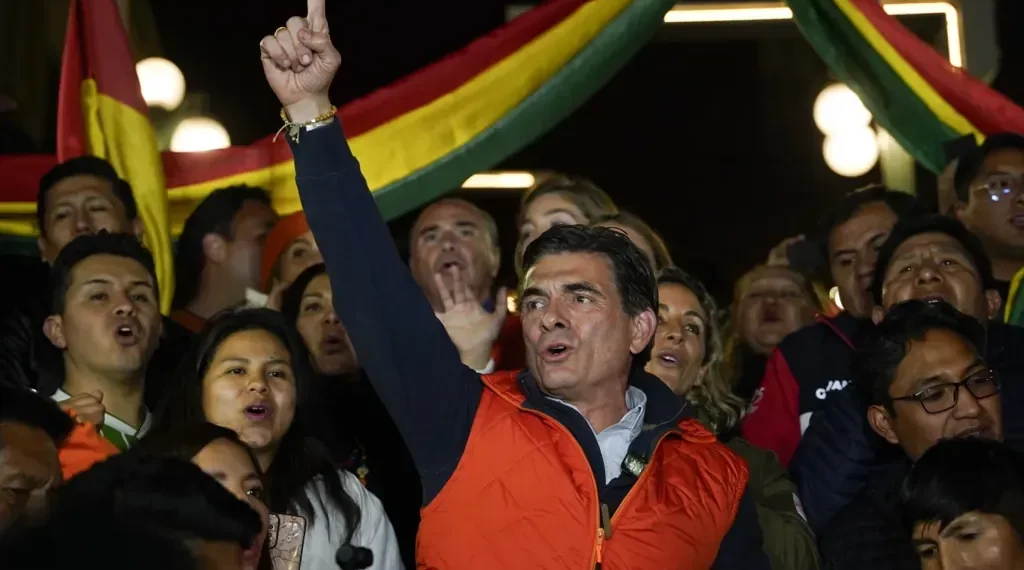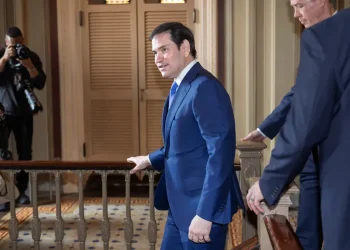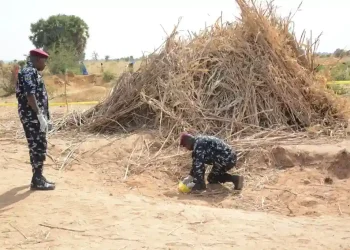Bolivia Faces Historic Presidential Runoff as Centrist Rodrigo Paz Leads Right-Wing Challenger
Published Time: 08-18-2025, 11:30
Bolivia’s presidential election has set the stage for a historic runoff, ending over 20 years of leftist control. Centrist Rodrigo Paz leads right-wing former President Jorge Quiroga, signaling voters’ desire for change without a sharp shift to the right. The runoff vote is scheduled for October 19, 2025.
Centrist Rodrigo Paz Takes Surprise Lead
Bolivia’s presidential race has moved to a runoff after Sunday’s elections disrupted the long-standing dominance of the left-wing Movement Toward Socialism (MAS) party. Early results show centrist Senator Rodrigo Paz, a former mayor of Tarija, ahead of the right-wing front-runners, although he fell short of an outright majority.
With over 91% of ballots counted, Paz captured 32.8% of the vote, while former President Jorge “Tuto” Quiroga secured 26.4%. Candidates needed either more than 50% or at least 40% with a 10-point lead to avoid a runoff. Bolivia will hold the election on October 19 — its first presidential runoff since returning to democracy in 1982.
“Always Bolivia, everything for Bolivia,” Paz declared to cheering supporters. “This economic model must change.”
Paz’s campaign gained traction through his partnership with Edman Lara, a social media-savvy ex-police captain, whose followers view him as a bold anti-corruption figure. His moderate platform contrasts with the hardline austerity policies proposed by his right-wing rivals.
Right-Wing Challenger Prepares for Runoff
Quiroga, speaking to supporters amid confetti and celebrations, congratulated Paz on his lead. “Bolivia told the world that we want to live in a free nation,” he said. “It’s a historic night.”
Quiroga’s rise to the second spot reflects Bolivia’s cautious approach to a sharp shift to the right. Businessman Samuel Doria Medina, a veteran of four failed presidential campaigns, finished outside the top two positions, underscoring public skepticism toward traditional right-wing figures.
“I wanted to serve Bolivia as president, and it hasn’t been possible,” Doria Medina said. “No regrets.”
MAS Party Suffers Historic Defeat
Sunday’s results mark a significant setback for the MAS party, which has governed Bolivia almost uninterrupted since former President Evo Morales rose to power during Latin America’s “pink tide” in the early 2000s. MAS candidate Eduardo del Castillo finished sixth with just 3.2% of the vote, while Senate President Andrónico Rodríguez, considered a strong contender, earned only 8%.
During his 14 years in power, Morales expanded the rights of Bolivia’s Indigenous population, supported coca growers, and directed natural gas revenues into social programs. However, efforts to extend his presidency amid corruption allegations and economic challenges eroded public support.
Under Morales’ successor, President Luis Arce, Bolivia has faced surging inflation — rising from 2% to over 16% in less than two years — fuel shortages, and a critical shortage of U.S. dollars to pay for essential imports such as wheat. These economic strains contributed to widespread dissatisfaction with MAS leadership.
In a stark demonstration of public frustration, leftist politicians faced verbal abuse and projectiles while casting ballots. In Chapare, a stronghold of Morales, Senate President Rodríguez was met with bottles, rocks, and a small dynamite explosion near his polling location.
Voters Seek Change Without Radical Shift
The rise of Paz reflects Bolivians’ ambivalence about returning to right-wing policies. Paz has distanced himself from Quiroga and Doria Medina’s plans to privatize Bolivia’s lithium reserves and rely on International Monetary Fund loans, instead emphasizing pragmatic economic reforms alongside opposition to MAS policies.
“I want to congratulate the people because this is a sign of change,” Paz said. “They want a different future.”
Despite being seen as a fresh alternative, Paz has strong political ties. He is the son of former President Jaime Paz Zamora, who governed Bolivia from 1989 to 1993 and co-founded the Revolutionary Left Movement before aligning with Banzer’s conservative party. Paz also previously ran for Senate under Quiroga’s party in 2014, linking him to Bolivia’s political establishment.
The Path Ahead for Bolivia
Bolivia now faces an unprecedented election runoff that could reshape the nation’s political landscape. The centrist approach of Paz versus the traditional right-wing policies of Quiroga highlights voters’ cautious stance: they want change without a dramatic swing back to neoliberal governance.
Observers say Bolivia’s economic crisis and public fatigue with MAS’ mismanagement played a decisive role in Sunday’s outcome. Analysts predict that voter turnout, coalition-building, and appeals to both moderate and conservative voters will determine the October 19 result.
This article was rewritten by JournosNews.com based on verified reporting from trusted sources. The content has been independently reviewed, fact-checked, and edited for accuracy, neutrality, tone, and global readability in accordance with Google News and AdSense standards.
All opinions, quotes, or statements from contributors, experts, or sourced organizations do not necessarily reflect the views of JournosNews.com. JournosNews.com maintains full editorial independence from any external funders, sponsors, or organizations.
Stay informed with JournosNews.com — your trusted source for verified global reporting and in-depth analysis. Follow us on Google News, BlueSky, and X for real-time updates.














